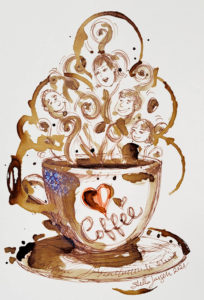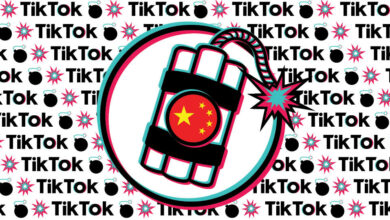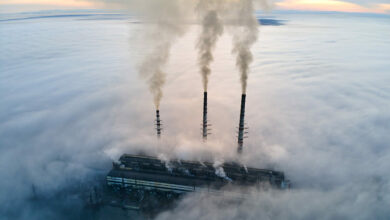Café, Chá ou…

Esta semana, na edição do Milénio Stadium, o foco é o café. Embora o assunto em questão possa parecer leve e irrelevante, o aspeto histórico e social do café merece discussão já que a sua relevância faz parte da diáspora mundial como parte da história dos próprios países.
O café cultivado por todo o mundo traça uma herança de vários séculos que remonta às antigas florestas dos planaltos da Etiópia. A evolução do café e os seus benefícios difundiram-se por todo o globo assim que chegaram à Península Ibérica e assim começou a jornada que levaria estes grãos pelo mundo todo. O cultivo do café começou na Península Ibérica e, no século 15 e 16, espalhou-se pelo Yemini, Pérsia, Egipto, Síria e Turquia. As atividades sociais começaram a decorrer à volta das casas de café e a popularidade do café tornou-se inigualável. As reuniões e trocas de informação eram organizadas nos locais de venda de café, um ritual que continua até hoje. Os peregrinos de Mecca referiam-se à bebida como o “vinho da Arábia”, enquanto os Europeus reagiam com desconfiança a esta nova bebida apelidada de “invenção amarga de Satanás”. Quando chegou a Veneza em 1615, o clero local condenou o café até que o Papa Clemente VIII lhe deu a sua bênção, determinando que era uma bebida satisfatória e dando a sua aprovação papal. Supostamente, esta bênção surgiu depois de muito vinho ser bebido, o que até aos dias de hoje continua a ser uma prática da Igreja Católica. O resto do povo substituiu a cerveja e o vinho pelo café ao pequeno-almoço. Em 1723, um jovem oficial da marinha francesa transportou uma planta para a ilha Martinica e, durante os 50 anos seguintes, cresceram 18 milhões de árvores de café. Essa planta é o pai de todas as árvores de café das Caraíbas, América Central e América do Sul.
Como o mundo do café gira. Hoje as guerras do café são frequentemente sobre quem serve o melhor café e a produção de grãos de café tornou-se uma componente essencial para a economia de vários países. É uma pena que enquanto saboreamos os sabores da nossa bebida favorita, em várias partes do mundo, existem condições próximas à escravatura no crescimento e colheita dos grãos. As alterações climáticas estão a afetar a produtividade das plantas, sendo o seu rendimento muito inferior ao passado, e assim, afetando os preços que pagamos.
Por isso, continue a desfrutar de uma das bebidas mais populares do mundo em qualquer ambiente social em que se encontre. Pagar $7.00 no Starbucks por um copo de café formulado cientificamente ou água castanha-suja na maioria dos locais, garante o prazer que a maioria procura. Muitos irão pedir um expresso que, depois de bebido, lhes dá arrepios já que são poucos os que o sabem fazer, contudo, uma onça de café num copo pequeno dá-lhes um motivo para se sentarem num pátio por uma hora, a ver o mundo passar e onde já se ouviu “queres sair para ir tomar um café?”. Essas são as palavras da amizade.
Fique bem.
Manuel DaCosta/MS
version in english
Coffee, Tea or…
In this week’s Milenio Stadium, the focus is on coffee. While the subject matter may appear lightweight and irrelevant, the historical and social aspects of coffee are worth discussing as its relevance has been part of the world’s diaspora as the history of countries themselves.

Coffee grown worldwide can trace its heritage back centuries to the ancient forests on the Ethiopian plateau. The evolution of coffee and its benefits spread across the globe once it reached the Iberian Peninsula and it began a journey, which would bring these beans across the globe. Coffee cultivation began in the Iberian Peninsula and by the 15th and 16th centuries, it spread to Yemini, Persia, Egypt, Syria, and Turkey. Social activities began to occur around coffee houses and the popularity of coffee was unequaled. Meetings and exchange of information were organized in coffee venues, which continues to this day.
The pilgrims to Mecca referred to the brew as the “wine of Araby,” while Europeans reacted with suspicion to this new beverage as the “bitter invention of Satan.” The local clergy condemned coffee when it came to Venice in 1615 until Pope Clement VIII gave his blessing, deciding it was a satisfying drink and gave it papal approval. Supposedly, this blessing came after a lot of wine drinking, which continues in the Catholic Church to this day.
The rest of the common folk substituted wine and beer for coffee for breakfast. In 1723 a young French naval officer transported a seedling to the island of Martinique and 18 million coffee trees grew in the next 50 years. This seedling is the parent to all coffee trees throughout the Caribbean, South and Central America.
How the coffee world turns. Today coffee wars are constant about claims of who serves the best coffee and the production of beans has become an essential component to the economies of many countries. It is unfortunate that while we savour the flavours of our favourite brew, slave-like conditions exist in the growing and collection of beans in many parts of the world. Climate change is affecting the productivity of the plants with outputs being much lower than in the past, thus affecting the prices we pay.
So keep enjoying one of the world’s most popular beverages in whatever social setting you are in. Paying $ 7.00 for a scientifically formulated cup of java at Starbucks or dirty brown water at most locations, provides the pleasure that most are looking for.
Many will still ask for an espresso, which, when drank, gives you shivers as very few know how to formulate it, but a one ounce of brew in a small cup gives you a reason to sit on a patio for an hour and watch the world go by and where have you heard “want to go out for a coffee?”. Those are the words of friendship.
Be well.
Manuel DaCosta/MS








Redes Sociais - Comentários